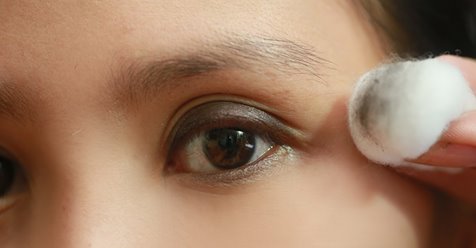How to Clear Your Skin
Everyone dreams of clear skin free of breakouts, inflammation, and dark spots. Whether you've always suffered from acne and large pores, or can't seem to conquer the redness of rosacea, these steps will lead you to smooth and supple skin. From methods for you to try yourself at home, to issues that need professional attention, these steps will get you on the path of healthy looking skin.
Cleansing your skin accurately is one of the most surefire methods to receive a clear, radiant tone. However, if you aren’t doing this correctly, you could be doing more harm than good. For instance, lukewarm water, rather than hot, is sufficient for entering the pore and rinsing away dirt and oil. Scrubbing too hard can exacerbate oil production and break down collagen, leaving you with an oily face and fine lines. Make sure to take your skin type into account when choosing a cleanser. If you are acne prone, choose a soap that is alcohol-free and has an acne fighting ingredient like salicylic acid or benzoyl peroxide.
· For those suffering from rosacea, non-soap cleansers like Cetaphyl work best, especially if they have a neutral PH level close to that of your skin.
· Nothing triggers eczema more than scented, harsh soaps. Natural, soothing products are best for those who suffer from eczema. You can even try a baby soap.
· Washing your skin more than twice a day is unnecessary as it strips your face of natural oils and can be drying. This could lead to premature aging.
· Not rinsing thoroughly after cleansing can lead to a buildup of residue, clogging pores and causing acne.
· Use your towel to pat your face dry, rather than rubbing.
Moisturizing is important for all skin types. Proper hydration can soothe dry skin, help reduce the appearance of scars, and is essential to restoring moisture after cleansing. A good rule of thumb is to moisturize no longer than a minute after washing your face. This is to replenish your pores of the hydration they've lost after washing. Leaving your skin just a little damp after you wash it will help lock in moisture.
· If you have scarring on your face, a treatment such as Scarguard or Mederma can be applied after moisturizing to help diminish the appearance of the scar over time. Treatments with collagen and a moisturizing agent work best to reduce scarring.
· An oil-free moisturizer is best for acne-prone skin so your pores don’t become increasingly clogged.
· For those with eczema or rosacea, the idea is to put hydration, or water, back into the skin to soothe it. Soak your skin nightly and moisturize with an ointment right after to improve its protective barrier.
1. Exfoliating will help you achieve an even skin tone, and clear out your pores by removing dead skin cells. The best methods for exfoliation include scrubs and face brushes. How often you do this, depends on your skin type. If you suffer from dry skin, even if you have acne, you won’t want to exfoliate more than once or twice a week. Those with oilier skin can exfoliate lightly every day if needed.
· Especially if you’re acne prone, exfoliation is needed to rid your pores of dead skin cells that build up, causing pimples and blackheads.
· You should avoid exfoliation if you have rosacea, as it can be too rough.
· If you’re considering exfoliating and you have eczema, make sure you do it gently with a washcloth, and not very often.
· If you are hoping to remove light scars with exfoliation, use glycolic or lactic acid in a lotion or cream.
Maintaining habits for clear skin is important for lasting results. Aside from cleansing, there are everyday steps you can take towards the clearer skin. Two of the most important habits to adapt are using constant sun protection and watching what you eat. Wearing a broad spectrum SPF is vital for protecting skin against UVA and UVB rays. These cause premature aging and sun spots. Eating processed foods can contribute to a dull complexion. Make sure your diet consists of whole foods, especially berries and nuts, for a radiant face.
· Regularly wash your makeup brush with soap and warm water to keep from spreading around dirt and oil.
· Keep your hair out of your face so that hair products and oil don't come into contact with your skin.




Comments
Post a Comment